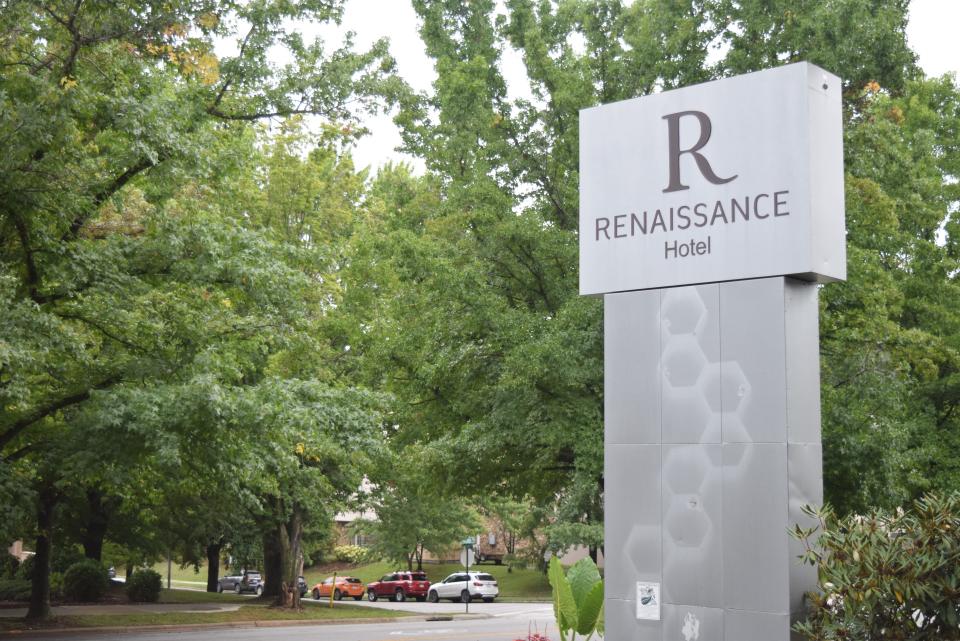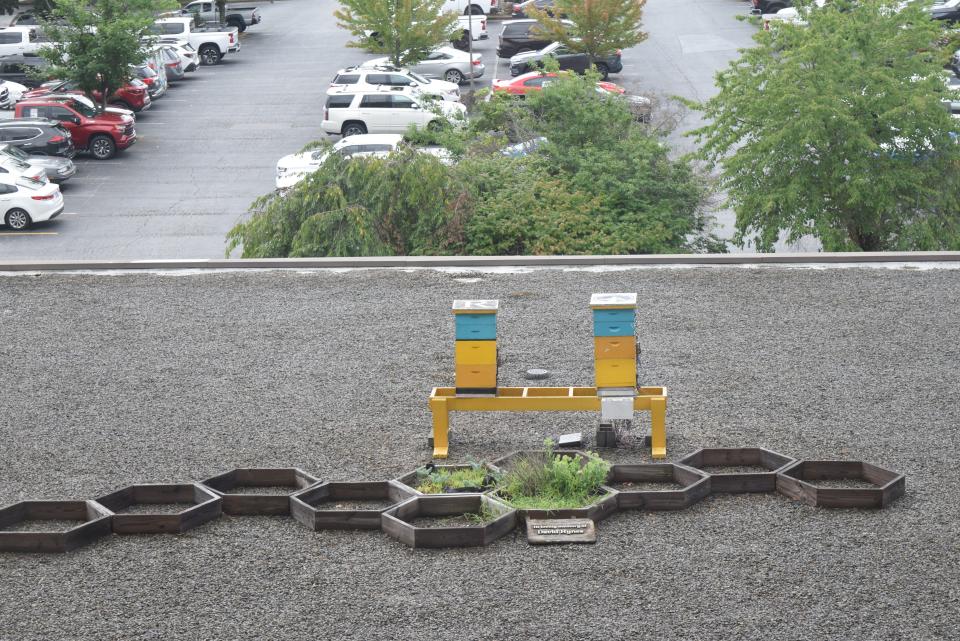Answer Man: Have bees disappeared from Downtown Asheville hotel?
Today’s question comes from a reader wondering whether the removal of a beehive pattern from the Renaissance Hotel, located at 31 Woodfin St., in downtown Asheville, means that there are no longer bees on the hotel’s rooftop. Are those bees “bee-gone?” Got a question for Answer Man or Answer Woman? Email Executive Editor Karen Chávez at KChavez@citizentimes.com and your question could appear in an upcoming column.
Question: I noticed today that the "beehive" symbols have been removed from the Renaissance Hotel sign in downtown Asheville. Does this mean that the hives are no longer on the roof?
Answer: While a honeycomb symbol was recently removed from the front sign of the hotel, this, fortunately, is unrelated. Fortunately, dear reader, the bees are still very much bumbling on the roof of the second floor.
“The good news is that the bees are staying,” said Suzanne Escovitz, senior marketing manager at the Renaissance Hotel. “We’re committed to the honeybees.”

Approximately 70,000 bees checked into the Renaissance Hotel in 2015 in collaboration with Bee City USA and the Bee Institute. Guests can view the “bee towers” from any of the guest floors, where they sit in a honeycomb shaped garden.
The hotel has previously held honey tasting contests in conjunction with the Bee Charmer, an Asheville-based honey shop.
“It’s been a super fun event,” said Escovitz. “We have judges here and we do blind honey tastings.”
More about hotel bees: Renaissance Asheville Hotel puts bees on roof
Climate change: Asheville's 1st on-ground heat mapping study with NOAA; Where are hottest places in city?
Bee education at the Renaissance
For Escovitz, the educational opportunity is part of what drives the hotel to keep the bees around.
“It’s more about educating people on what bees do and how important they are,” said Escovitz. “And since Asheville was the first Bee City USA, we wanted to play a part in that.”
Bee City USA, a Portland-based nonprofit that started in 2012, declared Asheville to be the first “Bee City USA” not long after its formation. Bee City USA, in collaboration with Asheville GreenWorks, has certified over 200 local gardens as pollinator habitats in Asheville.
To maintain a certified pollinator garden status, the garden must have native plants from trusted nurseries, have plants that bloom year-round and incorporate both nectar-providing plants and larval hosts such as milkweed. Additionally, the hotel cannot use pesticides around the bee towers.

In the past year, climate change and pesticides have been identified as the major cause for decline for the western bumble bee, a major North American bee species, according to the United State Geological Survey.
“One of the best things we do is maintain all the pollinator plantings, whether it be milkweed or goldenrod or all the things around the hotel that attract butterflies and bees,” Escovitz said. “It’s just cool to have those towers there.”
Answer Woman: Is it illegal to leave grass clippings on the sidewalk, road in Asheville?
Answer Woman: Will Duke Energy stop compensating customers who contribute solar energy?
Will Hofmann is the Citizen Times Growth and Development Reporter. Email him at WHofmann@citizentimes.com
This article originally appeared on Asheville Citizen Times: Answer Man: Have Downtown Asheville bees disappeared?

